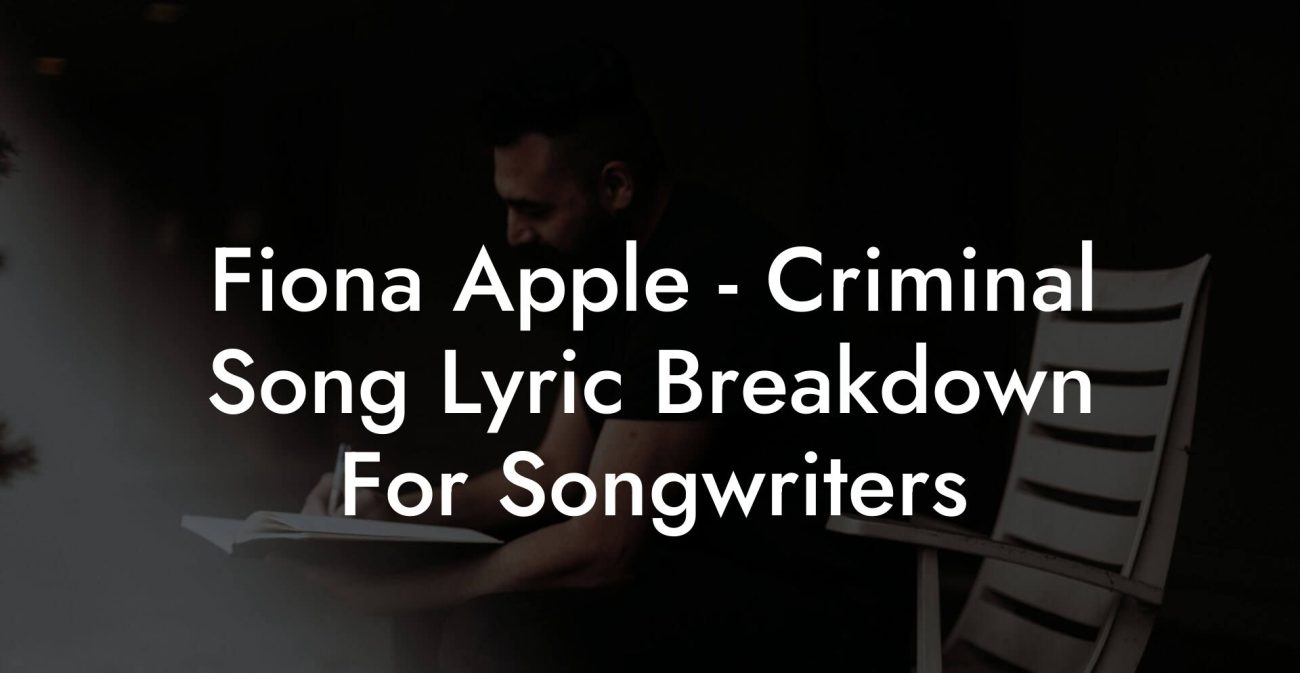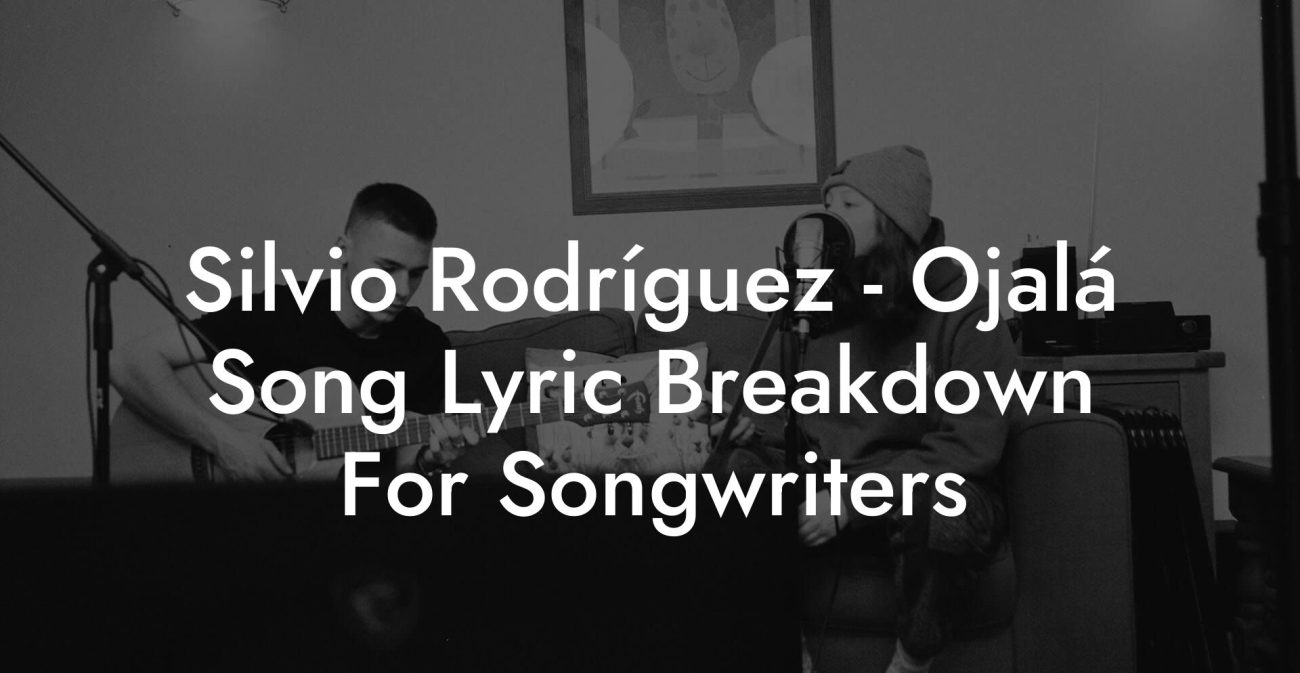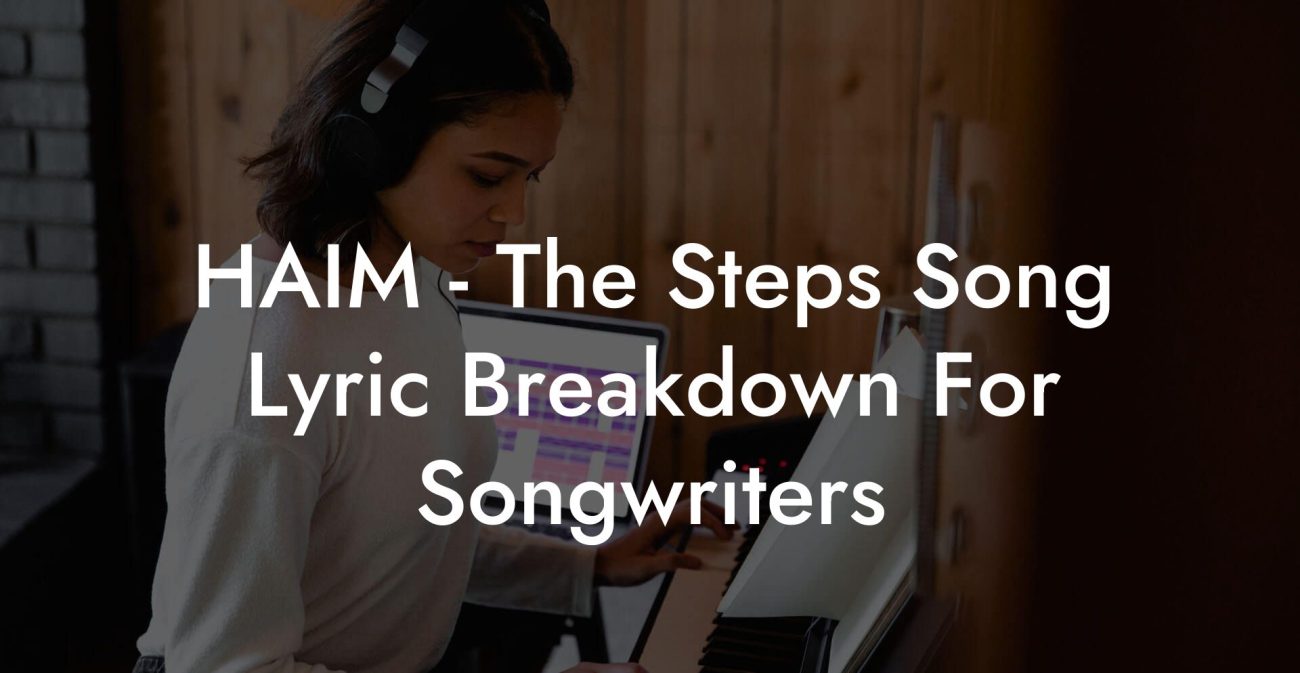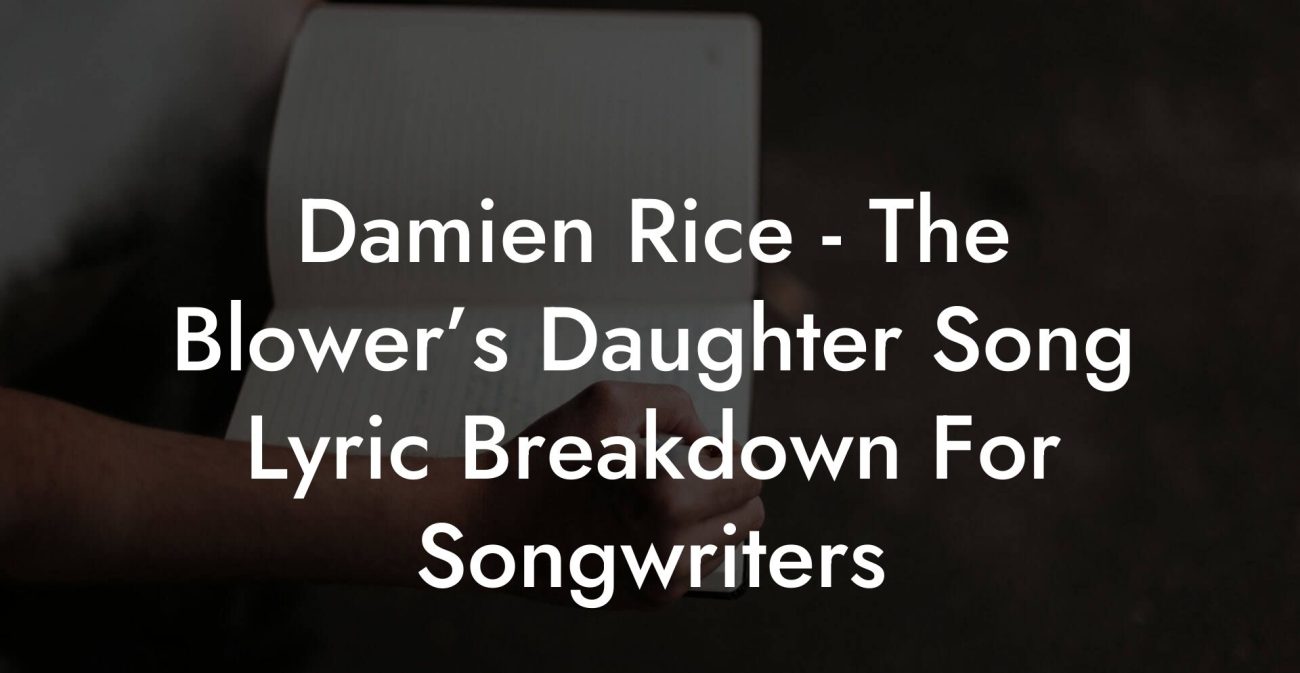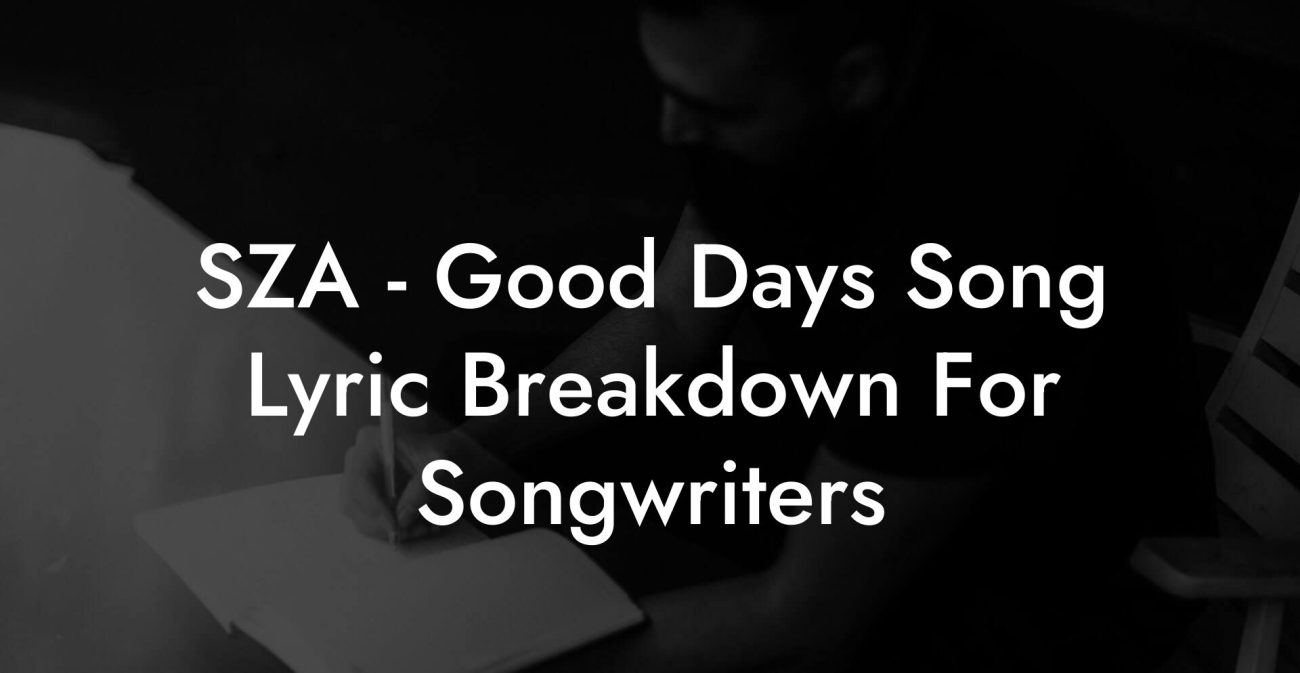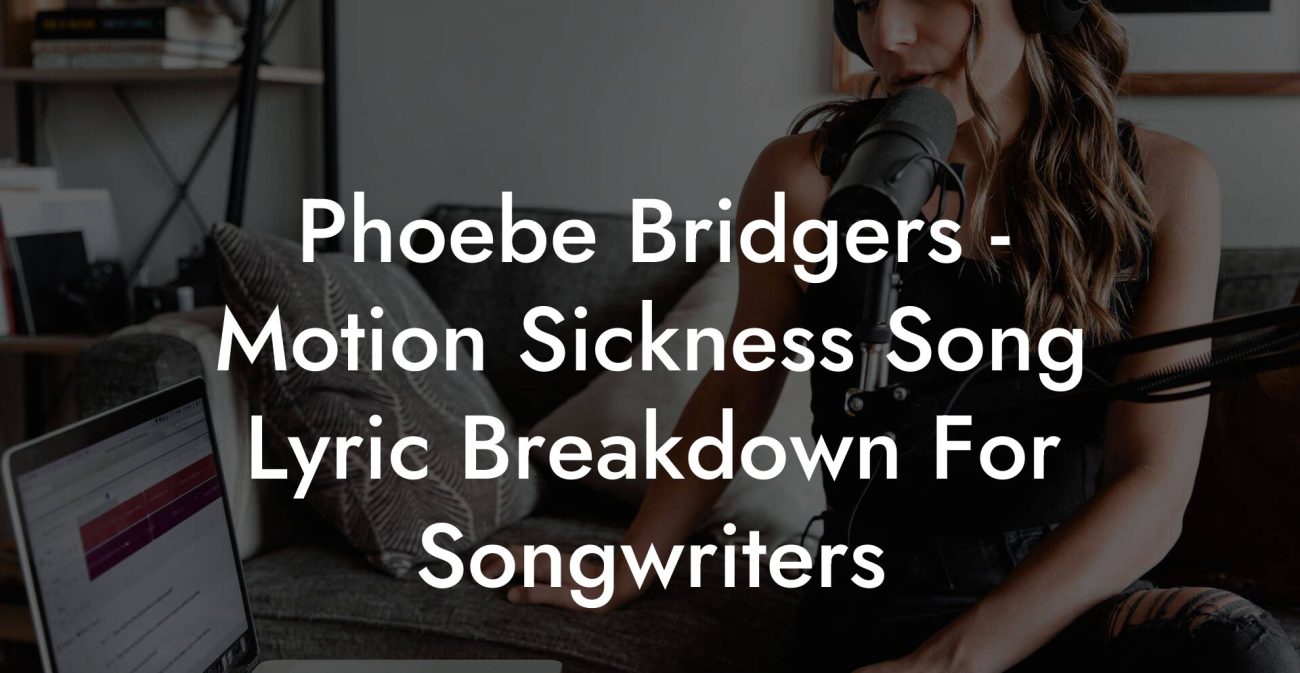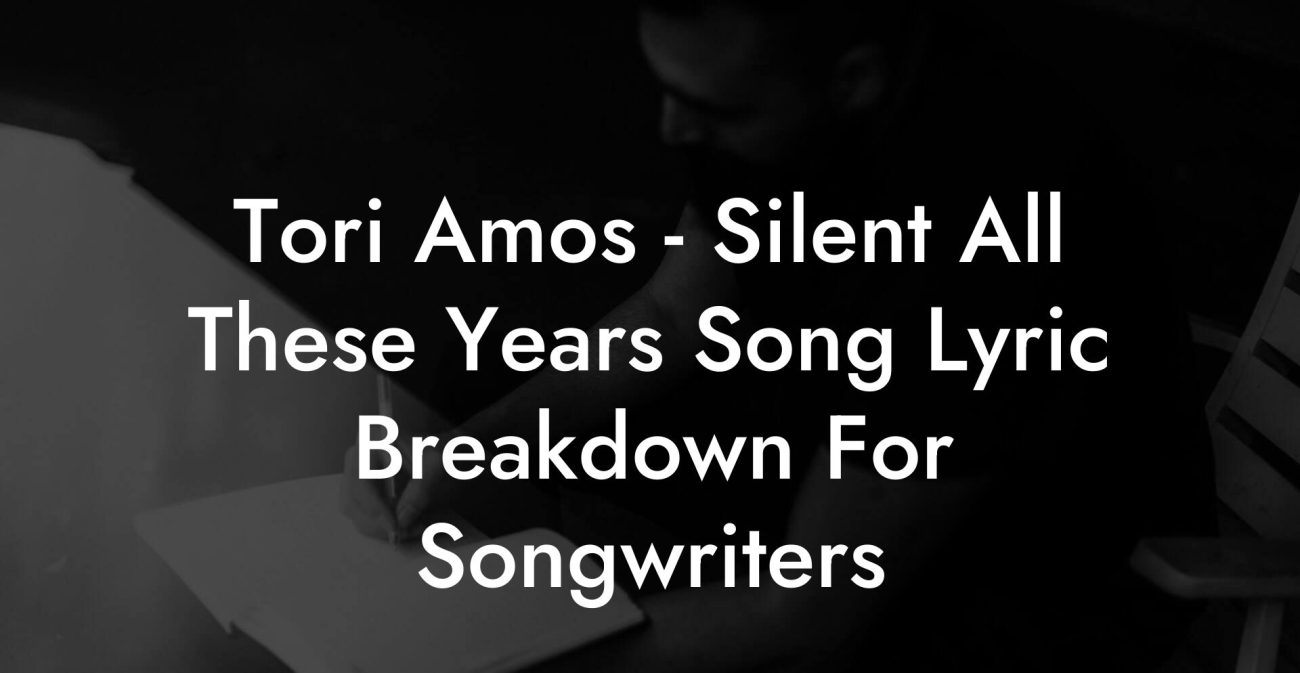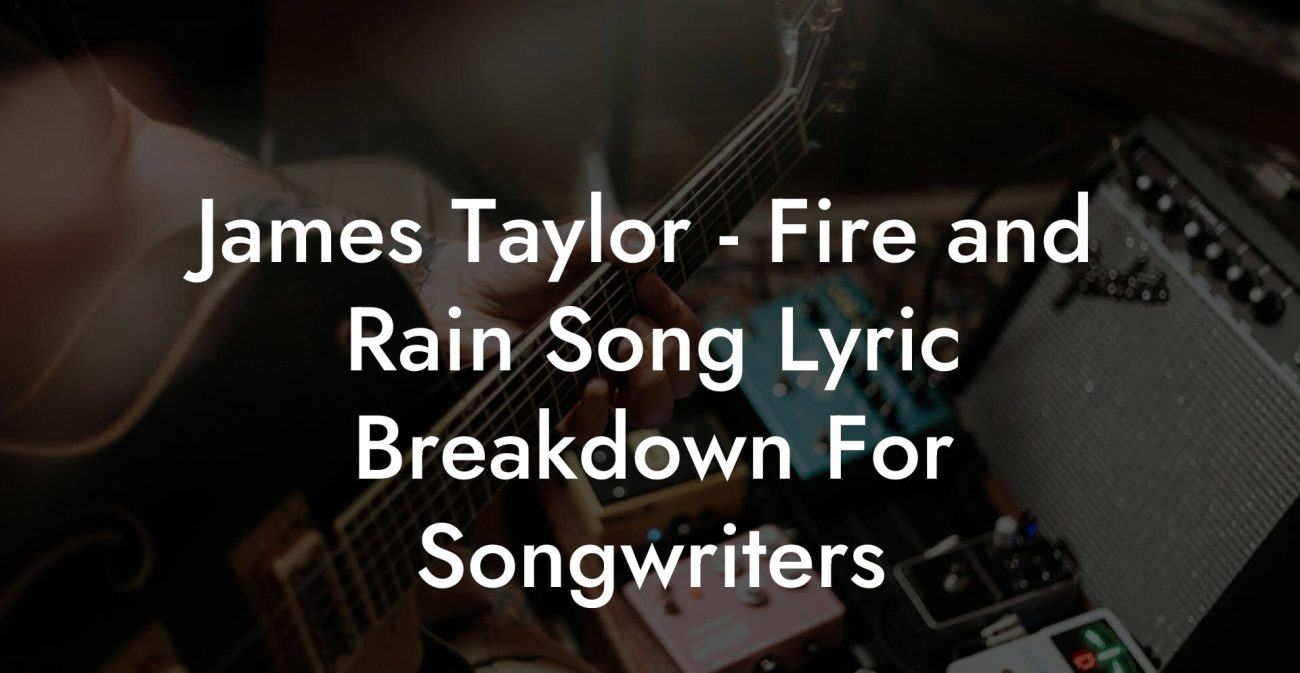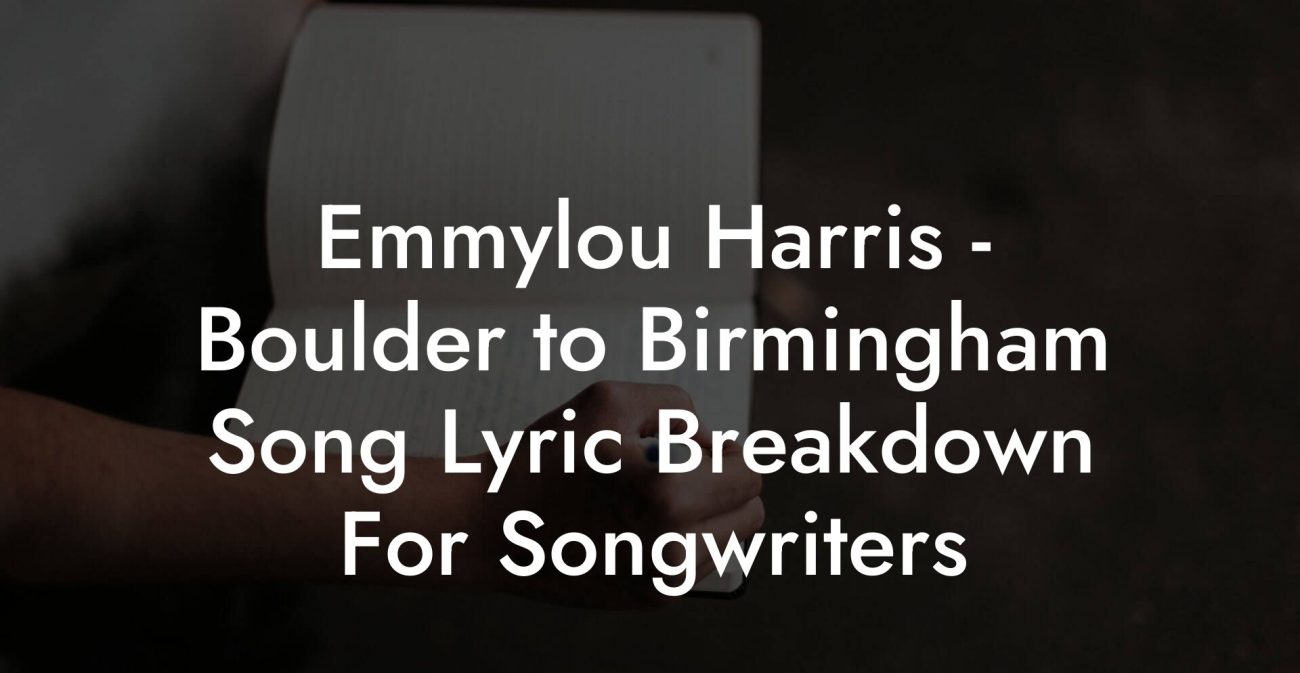Songwriting Advice
Caetano Veloso - Coração Vagabundo Song Lyric Breakdown For Songwriters
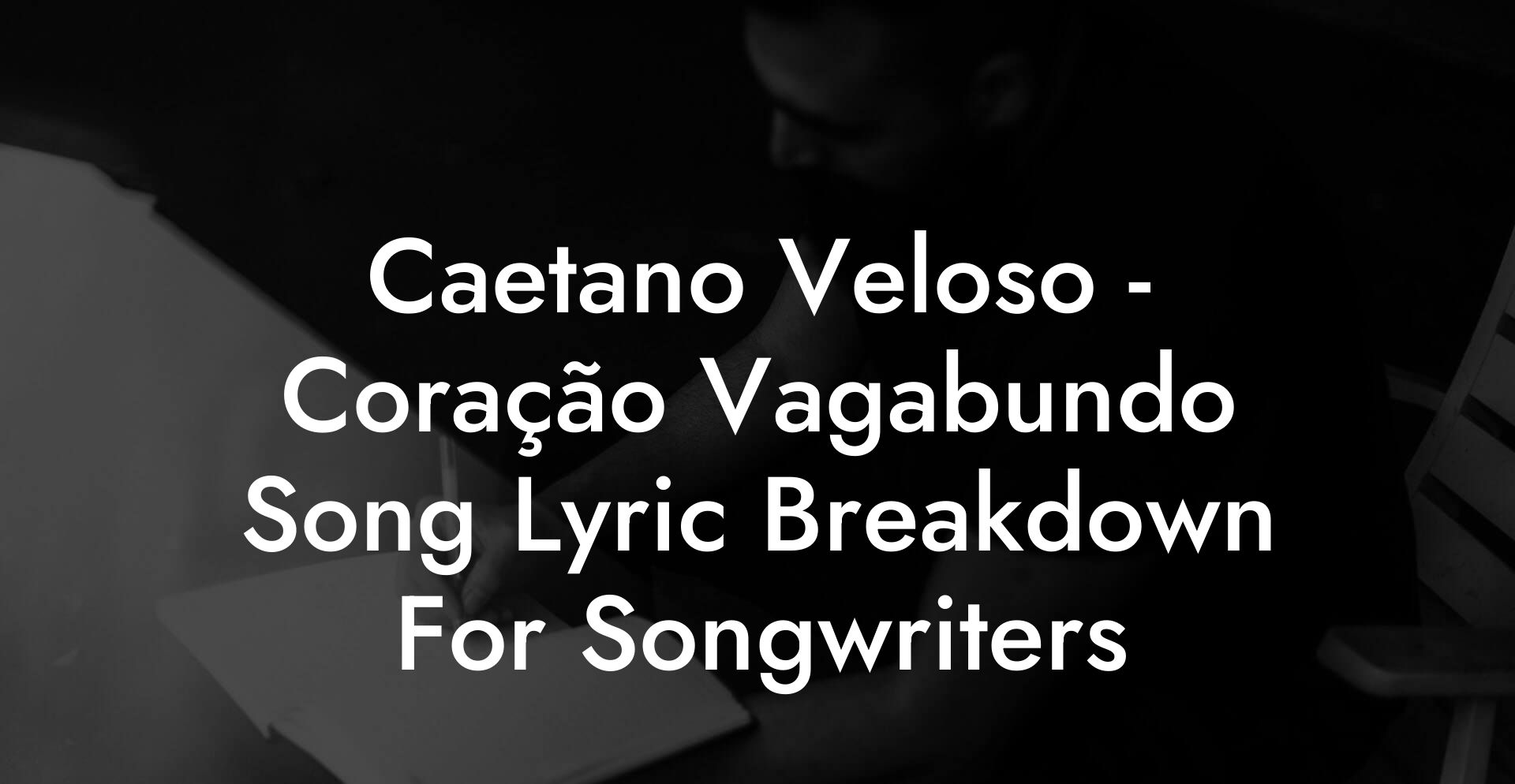
Read this if you want to rip the craft out of a classic and wear it like a vintage jacket. Caetano Veloso wrote Coração Vagabundo as a small perfect machine of voice and feeling. The words are spare. The melody floats. The song teaches us how a single repeated image carried with tenderness can hold the listener like a warm rooftop in a city storm. This breakdown walks the lyric line by line, translates and explains every poetic choice, and gives you concrete songwriting exercises to steal the techniques and use them in your own work.
Quick Interruption: Ever wondered how huge artists end up fighting for their own songs? The answer is in the fine print. Learn the lines that protect you. Own your masters. Keep royalties. Keep playing shows without moving back in with Mom. Find out more →
Quick Links to Useful Sections
- Why Coração Vagabundo matters for songwriters
- Short historical context
- Title and literal meaning
- Full lyric with literal translation
- Original Portuguese
- Poetic devices and what they do for the song
- Prosody and phrasing notes for singers
- Harmony and rhythm ideas you can use
- Melody and contour lessons
- Arrangement and production suggestions for a modern cover
- Intimate acoustic
- Indie dream pop
- Minimal electro bossa
- How to steal Caetano's techniques without copying the song
- Exercise 1: The Wandering Image
- Exercise 2: The Saudades Pass
- Exercise 3: The Personified Emotion
- Lyric editing checklist inspired by Caetano
- Performance tips for vocalists
- Common mistakes songwriters make when copying this style
- Micro prompts to write a Coração Vagabundo style chorus in 10 minutes
- How to adapt the song's approach for other genres
- FAQ
Everything here is honest, useful, and written for songwriters who want shortcuts that actually work. We will cover context, literal translation, emotional translation, prosody, melody and rhythm advice, harmonic suggestions you can play tomorrow, production notes for a modern take, and practical drills that make this song a living classroom. Terms and acronyms are explained in plain language with real life scenarios so you do not have to google anything mid coffee spill.
Why Coração Vagabundo matters for songwriters
Caetano Veloso is one of Brazil's great poets with a guitar. Coração Vagabundo is not the loud manifesto from the Tropicalia era. It is quiet, domestic, and intimate. That is its power. The song is a reminder that small scenes and small gestures can create enormous emotional space. For songwriters this is a masterclass in restraint. You learn to trust one image and let the music around it do the heavy lifting.
Real life scenario
- You are at 2 a.m. with a half written chorus. You feel like smashing it with adjectives. Coração Vagabundo teaches you to delete until you reach the single line that does the work. It is like choosing one perfect flame to light a room rather than trying to set the curtains on fire.
Short historical context
Keep this simple. Caetano rose to prominence in Brazil in the late 1960s. He moved between folk intimacy and radical art. Coração Vagabundo sits on the intimate side. It was written during the time when Brazilian music embraced new textures while still honoring samba, bossa nova, and deeply personal lyricism. The song feels timeless because it borrows folk economy and dresses it with a melodic grace that is very human.
Title and literal meaning
Coração means heart. Vagabundo means vagabond or wanderer. Together the title reads as Vagabond Heart or Wandering Heart. Vagabond here is not a condemnation. It is character. It is a heart that moves, that does not settle, that prefers the open road to a neat address. Translating idiom is never exact. Vagabond has a slightly romantic aura in English that matches the song.
Full lyric with literal translation
Below is a line by line presentation. Each Portuguese line is followed by a literal translation and then notes that explain phrasing and songwriting choices. If you do not speak Portuguese this will help you sing the song with intention rather than copycat gestures.
Original Portuguese
Tenho andado sempre a pensar em ti
Literal translation
I have been always thinking about you
Notes
This opening line places us immediately inside a mind that keeps returning to someone. The grammar in Portuguese uses a progressive feel that English renders awkwardly unless you tighten it. As a songwriter you want to honor the continuous tension in the original. Sing it with a lazy rising melody that reflects recurring thought. Vocally this can be near spoken for intimacy.
Original Portuguese
Coração vagabundo
Literal translation
Vagabond heart
Notes
Title repetition acts as a refrain and as the song identity. Short, memorable, and image rich. This is the line you will repeat. Notice how the adjective follows the noun in Portuguese. That order gives a small musical delay that feels elegant. In English you can keep the delay by placing words around the title rather than forcing a direct translation.
Original Portuguese
Saio à rua e procuro notícias tuas
Literal translation
I go out into the street and search for news of you
Notes
Here the physical action of going out into the street balances the inward thinking from the first line. The verb procuro is active and slightly desperate. For songwriting take note of activity plus object. Instead of saying I miss you, the lyric shows a search. Showing beats telling is a core pop truth and Caetano uses it with economy.
Original Portuguese
É que assim eu esqueço um pouco a saudade
Literal translation
It is that this way I forget a little the saudade
Notes
Saudade is a Portuguese word that does not translate cleanly into English. It is a dense term that mixes longing, nostalgia, absence, and sweetness. In songwriting you can treat such words as a hot potato. Keep the Portuguese word and let the music carry meaning. Or provide a parenthetical translation that preserves the weight. The line itself admits the strategy. The action of searching distracts the heart from longing, if only briefly.
Original Portuguese
Esqueço um pouco que te queria
Literal translation
I forget a little that I wanted you
Notes
The verb queria is imperfect. It describes an ongoing desire rather than a completed decision. This nuance matters. The tension remains that the heart wanted even when the speaker claims to forget. Musically keep a suspended cadence on this line so that the listener feels the desire unresolved.
Original Portuguese
Por favor, deixa-me ir
Literal translation
Please let me go
Notes
A direct plea. In the song it functions as both surrender and request for permission to live. The simplicity of the language is deceptive. It is like someone slipping a note under a door. As a songwriter the dirty trick here is that small requests sound huge when delivered after image rich lines. Timing matters.
Original Portuguese
Coração vagabundo
Literal translation
Vagabond heart
Notes
Repetition returns us to the title. Repetition is not redundancy if it clarifies identity. Caetano repeats the phrase to cinch the emotional thesis of the song. The listener now knows who the narrator is and what the narrator is doing.
Original Portuguese
Se eu pudesse qualquer coisa pedir a Deus
Literal translation
If I could anything ask of God
Notes
Here the lyric expands the scale. The local scene of searching becomes a cosmic wish. It is a songwriting technique to widen scope after a tight image to reveal stakes. Mentioning God is not necessarily religious. It is a rhetorical move to show depth of desire. Keep your voice authentic when borrowing this move.
Original Portuguese
Eu pediria que tu fosses meu também
Literal translation
I would ask that you were mine too
Notes
This is gentle possession. The language is conditional and polite. It reads like two people speaking over a coffee and not like a soap opera threat. The musicianship here is restraint. Do not over dramatize unless your arrangement asks for it.
Original Portuguese
Mas enquanto Deus não vem e a pressa é minha
Literal translation
But while God does not come and the hurry is mine
Notes
Pressa means hurry or urgency. The line admits impatience. The lyric moves between the wishful and the everyday in one breath. As a songwriter this creates an emotional jitter. Use rhythm and micro phrasing to show the hurry. Short syncopated notes work well.
Original Portuguese
Tenho sempre a mania de te esquecer
Literal translation
I always have the mania of forgetting you
Notes
Mania here is a repetition that feels like a nervous habit. The speaker confesses their failing to forget. This is human. Songwriting gains trust when the narrator admits flaws rather than heroic states. It is a stylistic compass for relatable writing.
Original Portuguese
Mas não sei por que a vida é assim
Literal translation
But I do not know why life is like this
Notes
This rhetorical question pulls the listener back to a universal level. After intimate details the writer asks a wide question to include us. Keep the musical phrasing open ended so the line sounds like a sigh rather than a lecture.
Original Portuguese
Toda hora vem e diz meu bem
Literal translation
Every hour it comes and says my dear
Notes
The phrase meu bem is a pet name like my dear. The personified emotion returns to speak directly to the narrator. It is a nice trick. The memory becomes its own character who interrupts the present. In your songwriting try letting an image step forward and address the narrator to create intimacy.
Original Portuguese
Coração vagabundo
Literal translation
Vagabond heart
Notes
Again the title. Each repetition is layered with the line before it. It is not just a chorus function. It is a character show. The title is a person in the song now.
Poetic devices and what they do for the song
- Repetition as identity. The title repeats like a name tag. In songwriting, repeating a small phrase anchors the song.
- Personification. The heart is a vagabond who moves and speaks. Giving emotion agency makes it relatable. Your listeners meet the emotion like a person they know from high school.
- Specific action. Going out into the street searching is more interesting than saying missing. Small verbs create scenes.
- Portuguese terms of art. Saudade is a loaded word that invites listeners to feel rather than define. Keep culturally specific words when they are dense. They act like a flavoring agent not a foreign barrier.
- Contrast in scale. From a quiet street to asking God. The sweep creates stakes.
Prosody and phrasing notes for singers
Prosody means matching the natural stress of words to the strong beats in your melody. Caetano is a master at letting the spoken rhythm determine melodic rhythm. He often lets small unstressed words slide softly and places meaningful words on sustained notes. That is the secret sauce.
Practical prosody checklist
- Say the line out loud at conversation speed. Mark the stressed syllables you would naturally emphasize.
- When you sing, place those stressed syllables on beats one and three or on long notes. If a stressed syllable falls on a weak beat the phrase will feel wrong even if the melody is beautiful.
- Use tiny pauses like commas in speech. Caetano does this. It keeps the vocal honest and breathable.
Real life scenario
You are recording a demo and your delivery feels off. Do the spoken test. The moment you find the natural stress you will also find the place to let the line breathe in the mix. The mic picks up truth more than technique. Use truth.
Harmony and rhythm ideas you can use
The original arrangement sits in a soft Brazilian groove. If you want to learn the feel, think bossa nova and light samba textures. For most songwriters a simple harmonic palette will let the lyric float.
Try this guitar progression to practice the vocal
- Key of C major example
- Cmaj7 | Am7 | Dm7 | G7
- Repeat with slight variation in the second half: Cmaj7 | E7 | Am7 | G7
Why this works
These chords create a warm platform. Major seven chords smooth the edges. The small walk to the II chord and then to the V gives gentle motion. The E7 is a borrowed dominant to add color and a touch of longing. You do not need complex jazz chords to capture the melancholic warmth. Keep the rhythm lazy and syncopated. Play with a thumb bass and fingered accents on the off beats to mimic Brazilian guitar patterns.
Melody and contour lessons
Caetano often sings with small leaps and conversational phrases. The melody rarely screams. It asks. This is a useful trick if you want emotional honesty over melodrama.
Melodic moves to study
- Use a recurring motif that returns in slightly different register or with a changed last note. That creates familiarity with subtle change.
- Place the most important word on a sustained note. Let the syllable live there. Listeners will remember that moment.
- Craft a small melodic rise into the chorus or refrain. A third is enough. The ear reads it as lift.
Arrangement and production suggestions for a modern cover
If you want to produce a modern version that respects the original intent, do not over orchestrate. The song lives in space. Here are options for different vibes.
Intimate acoustic
- Guitar with nylon strings played lightly
- Warm double tracking of the lead vocal in certain lines for texture
- Soft brush snare or low percussion like a light shaker
Indie dream pop
- Pad textures under the verse to create a bed of warmth
- Subtle reverb on the vocal to place it inside the room
- Use a repeating electric guitar motif with slight chorus effect as the title repeats
Minimal electro bossa
- Programmed kick on one and light percussion on the off beats
- Bass remains simple, moving with the root notes
- Vocal intimacy with infrequent harmonies for emphasis
Production tip
Leave a small space before the title phrase each time it repeats. Silence is a hook. The brain leans into small gaps like a cat at a window.
How to steal Caetano's techniques without copying the song
Stealing is a craft term. You steal a technique, not the words or the melody. Here are direct exercises that copy the method and force you to generate original material quickly.
Exercise 1: The Wandering Image
- Pick one domestic object in your room right now. Example, a mug.
- Write one line where that object performs an action related to longing. Example, The mug keeps your lipstick at noon.
- Make one short title around that image. Keep it two words. Example, Mug Memory.
- Write a three line chorus using the title repeated once. Keep each line no more than eight syllables.
Exercise 2: The Saudades Pass
- Choose a word in your language that captures a complex emotion like saudade. If none exists, borrow a single foreign word and define it in your chorus line.
- Write a verse where you avoid the words miss, love, and lonely. Show the feeling through action.
- Draft a pre chorus that widens the scope to a cosmic image like asking God or the sea.
Exercise 3: The Personified Emotion
- Write a line where the emotion shows up physically and speaks to you. Example, The memory knocks at my kitchen glass and calls me by my old name.
- Let that line end the verse and lead into your title.
Lyric editing checklist inspired by Caetano
- Delete any line that states feeling without an image.
- Replace general words with a single specific object or verb.
- Keep one repeated phrase that functions as a name or identity.
- Use a small scale action to resolve the thought of the previous line.
- Be willing to keep foreign words if they carry meaning that would be lost in translation.
Performance tips for vocalists
Caetano sings like he is telling a secret. That is your performance target. Make the listener feel like the room holds only the two of you. Do not belt. Keep vowels round and close to natural speech. Let the consonants breathe. When you repeat the title, add a tiny harmonic or a whispered syllable to make the later repeats feel like memories rather than copies.
Common mistakes songwriters make when copying this style
- Overwriting with imagery. Caetano uses a single strong image not ten. If you pack too much, the listener will lose the anchor.
- Forcing foreign words. Using a foreign word for novelty is tacky. Only use it if it holds meaning you cannot get in your language.
- Trying to be poetic at the expense of rhythm. The lyric must speak. If it is beautiful but awkward to say, it will sound fake.
Micro prompts to write a Coração Vagabundo style chorus in 10 minutes
- Pick one object in the room and name it.
- Write a one line action for the object that implies absence.
- Create a two word title that can be repeated meaningfully.
- Write three chorus lines. Start with the title, then show, then widen scale.
- Sing the chorus over a gentle Cmaj7 to Am7 loop. Adjust stresses to land on the beat.
How to adapt the song's approach for other genres
The core idea is universal. Use the same lyric economy and personification no matter the genre. In hip hop you can let the personified emotion speak as a recurring hook. In R B you can stretch the title over more bars and add melodic ornaments. In folk you keep it spare and center the guitar. The mechanics change but the narrative spine stays the same.
FAQ
What does Coração Vagabundo mean in English
It literally means Vagabond Heart or Wandering Heart. The title signals a heart that moves freely, unable to settle. It is both romantic and slightly mischievous.
What is saudade
Saudade is a Portuguese word that blends longing, nostalgia, missing someone, and a bittersweet affection for absence. It is not exactly translatable in one word. In songwriting it acts like a mood palette that combines ache and warmth.
Can I use Portuguese words in my songs
Yes. Use them when they carry unique meaning you cannot duplicate. Keep the rest of the lyric clear so the word functions as flavor rather than alienation. Many listeners welcome a foreign word if it feels honest and repeated enough to be learned by ear.
How do I keep my lyrics simple but not boring
Choose one strong image and build around it. Use verbs that do things. Repetition of a small phrase creates tension and pay off. Edit aggressively. If a line explains rather than shows, cut it or rewrite it as an action.
What guitar chords capture the feel of this song
Warm major seven and minor seven chords played in a syncopated pattern capture the feel. Try Cmaj7, Am7, Dm7, and G7 to start. Add a secondary dominant like E7 if you want a touch of longing.

